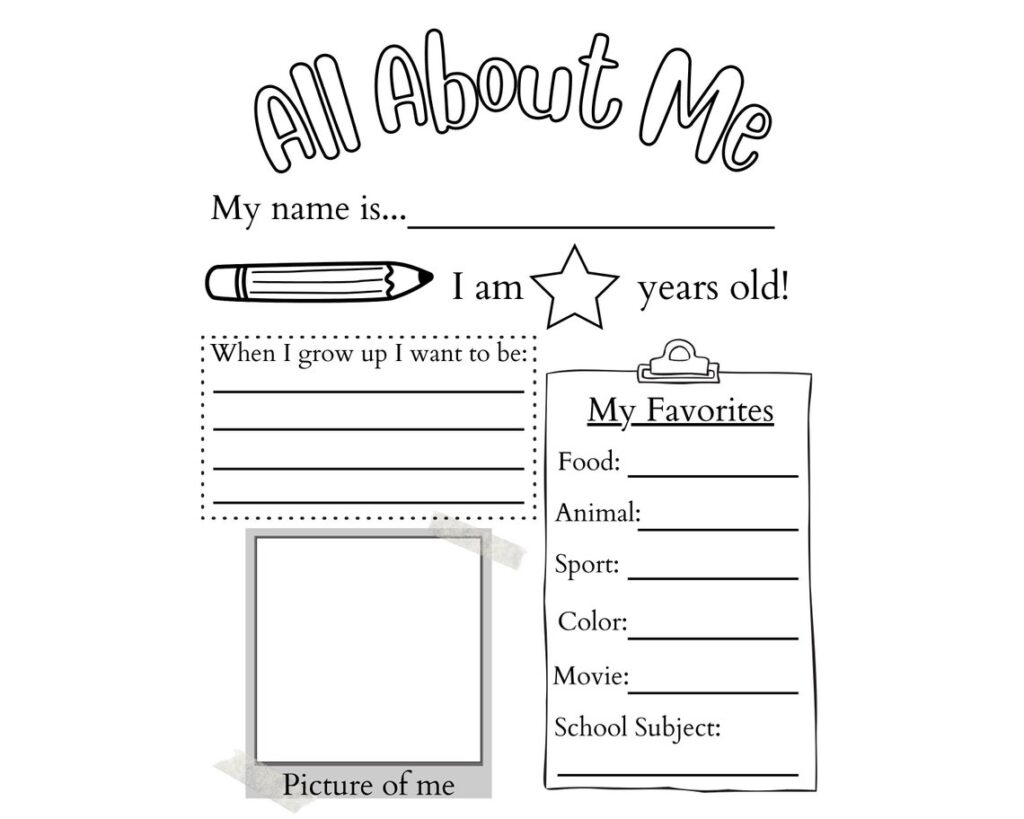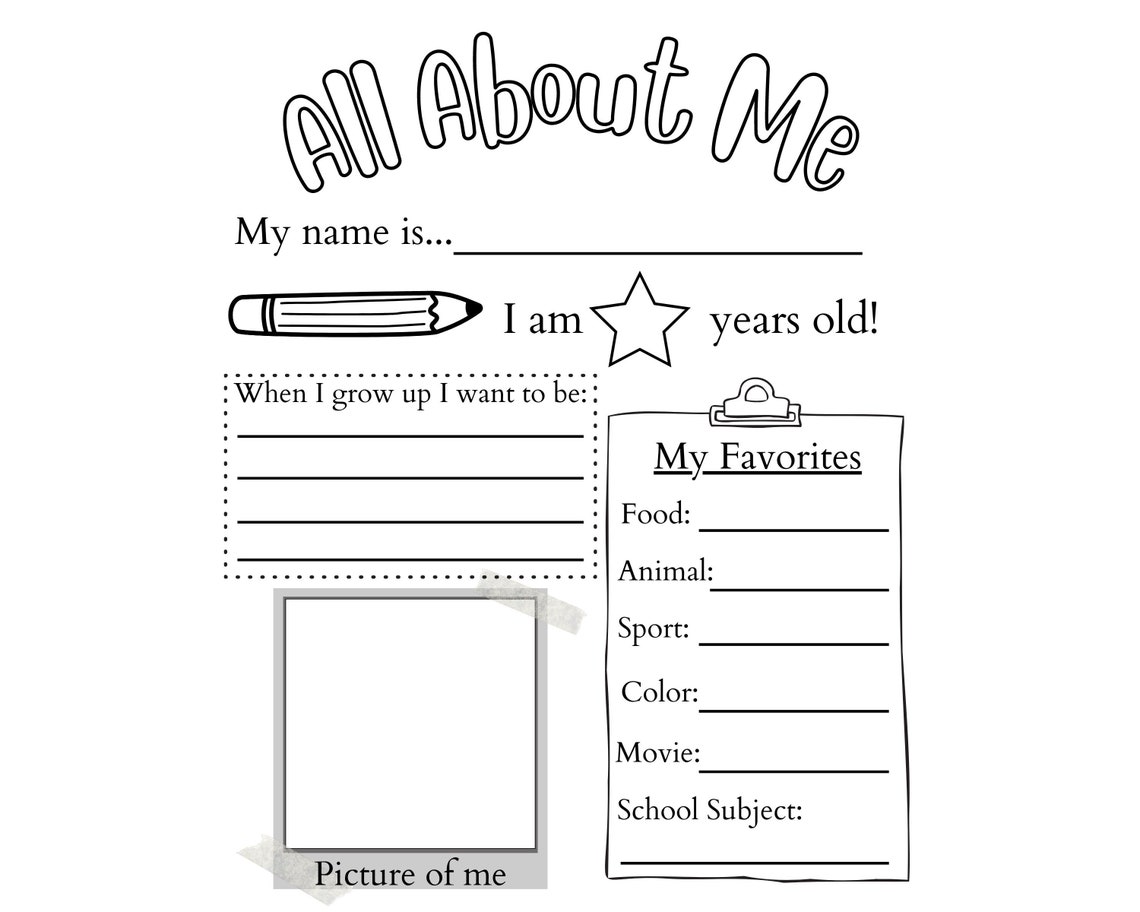
Sparking Conversations: Get to Know You Questions for Kids
Building strong relationships with children requires more than just being present; it necessitates genuine connection and understanding. One effective way to foster this connection is through engaging conversations, and that’s where well-crafted get to know you questions for kids come into play. These questions, designed to be both fun and insightful, can unlock a child’s thoughts, feelings, and perspectives, creating a deeper bond between adults and children, or even among children themselves.
This article explores a variety of get to know you questions for kids, offering guidance on how to use them effectively and why they’re so beneficial. Whether you’re a parent, teacher, coach, or simply someone who enjoys interacting with children, these questions can be a valuable tool in your communication arsenal.
Why Use Get to Know You Questions with Kids?
The benefits of using get to know you questions for kids are numerous and far-reaching. Here are some key advantages:
- Building Rapport: These questions help break the ice and create a comfortable atmosphere for children to open up.
- Encouraging Self-Expression: They provide a platform for kids to share their thoughts, feelings, and experiences, fostering self-awareness and confidence.
- Developing Communication Skills: Answering these questions helps children articulate their ideas and practice their communication skills.
- Promoting Empathy: Hearing other children’s responses can help kids understand different perspectives and develop empathy.
- Discovering Interests and Passions: These questions can reveal a child’s interests, hobbies, and passions, providing valuable insights for parents and educators.
- Strengthening Relationships: By learning more about each other, children and adults can build stronger, more meaningful relationships.
Age-Appropriate Get to Know You Questions
It’s crucial to tailor the get to know you questions for kids to their age and developmental stage. What works for a preschooler might not be suitable for a teenager. Here’s a breakdown by age group:
Preschoolers (Ages 3-5)
Keep the questions simple, concrete, and focused on their immediate experiences.
- What is your favorite color?
- What is your favorite animal?
- What is your favorite thing to do outside?
- What makes you happy?
- What makes you sad?
- Who is your best friend?
- What is your favorite food?
- What is your favorite toy?
- What do you want to be when you grow up?
- What is your favorite book?
Elementary School Children (Ages 6-11)
These questions can be a bit more complex, exploring their thoughts, feelings, and opinions.
- What is your favorite subject in school?
- What is your favorite game to play?
- If you could have any superpower, what would it be?
- What is the kindest thing someone has ever done for you?
- What is something you are good at?
- What is something you want to learn how to do?
- If you could travel anywhere in the world, where would you go?
- What is your favorite movie or TV show?
- What is your favorite holiday?
- What are you most proud of?
Teenagers (Ages 12-18)
These questions can delve into deeper topics, such as their values, goals, and aspirations.
- What are your hobbies or interests?
- What are your career aspirations?
- What are you passionate about?
- What are your biggest strengths?
- What are your biggest weaknesses?
- What are your goals for the future?
- Who do you admire most and why?
- What are you most grateful for?
- What is your biggest challenge right now?
- What is your definition of success?
- What are some things you value in a friendship?
- What’s a skill you’d like to improve?
- What’s a cause you care about?
- What kind of impact do you want to have on the world?
Fun and Engaging Get to Know You Question Ideas
Here are some additional get to know you questions for kids that can spark interesting conversations:
- If you could have any animal as a pet, what would it be and why?
- If you could eat only one food for the rest of your life, what would it be?
- If you could have dinner with any famous person, living or dead, who would it be?
- If you could invent something that would make the world a better place, what would it be?
- What is the silliest thing you have ever done?
- What is your favorite thing about your family?
- What is your favorite thing about your friends?
- If you could change one thing about the world, what would it be?
- What is something you are looking forward to?
- What is a skill you want to learn?
- What’s the best gift you’ve ever received?
- What’s your favorite way to spend a rainy day?
- If you could have any job in the world for one day, what would it be?
- What’s a place you’ve always wanted to visit?
Tips for Asking Get to Know You Questions
Asking get to know you questions for kids is not just about reciting a list; it’s about creating a safe and supportive environment where children feel comfortable sharing their thoughts and feelings. Here are some tips for asking these questions effectively:
- Be a Good Listener: Pay attention to their answers and show genuine interest.
- Ask Open-Ended Questions: Encourage them to elaborate and provide more details.
- Be Patient: Give them time to think and formulate their answers.
- Be Respectful: Accept their answers without judgment, even if you disagree.
- Share Your Own Answers: Model vulnerability by sharing your own experiences and perspectives.
- Make it Fun: Turn it into a game or activity to make it more engaging.
- Be Mindful of Their Comfort Level: Don’t push them to answer questions they’re not comfortable with.
- Create a Safe Space: Ensure they feel safe and supported to share their thoughts and feelings without fear of ridicule or judgment.
- Be Present: Put away distractions and give them your undivided attention.
- Follow Up: Remember their answers and follow up on them in future conversations.
Incorporating Get to Know You Questions in Different Settings
Get to know you questions for kids are versatile and can be incorporated into various settings:
- At Home: Use them during family dinners, car rides, or bedtime routines.
- In the Classroom: Use them as icebreakers, group activities, or writing prompts.
- On the Sports Field: Use them to build team cohesion and camaraderie.
- At Summer Camp: Use them to help campers get to know each other.
- During Playdates: Use them to facilitate conversation and connection between children.
The Importance of Active Listening
Asking get to know you questions for kids is only half the battle. The other half is active listening. Active listening involves paying close attention to what the child is saying, both verbally and nonverbally. It also involves asking clarifying questions, summarizing their points, and reflecting on their feelings. By actively listening, you show the child that you value their thoughts and feelings, which strengthens your connection and encourages them to open up even more.
Turning Questions into Deeper Conversations
Get to know you questions for kids are a great starting point, but they can also be used to spark deeper conversations. For example, if a child says their favorite color is blue, you could ask them why they like blue so much, what things remind them of blue, or how blue makes them feel. By digging deeper, you can gain a better understanding of their thoughts, feelings, and experiences. You can also tie these conversations to real-life situations. [See also: Teaching Children About Emotions] If a child mentions they are nervous about a test, you can discuss strategies for managing anxiety and building confidence.
Making it a Regular Practice
The benefits of using get to know you questions for kids are maximized when it becomes a regular practice. Set aside time each week or month to have these conversations with your child. This will not only help you stay connected but also provide them with a consistent opportunity to express themselves and develop their communication skills. It’s a fantastic way to build a lasting and meaningful relationship based on mutual understanding and respect. Remember to adapt the questions to suit their evolving interests and developmental stage. The goal is to create a comfortable and engaging environment where they feel valued and heard.
Conclusion
Get to know you questions for kids are a powerful tool for building relationships, fostering self-expression, and developing communication skills. By using these questions effectively and actively listening to their responses, you can create a deeper connection with the children in your life and help them grow into confident, well-adjusted individuals. So, the next time you’re looking for a way to connect with a child, try asking a few get to know you questions for kids – you might be surprised at what you discover. These simple questions can open doors to meaningful conversations and lasting bonds.

